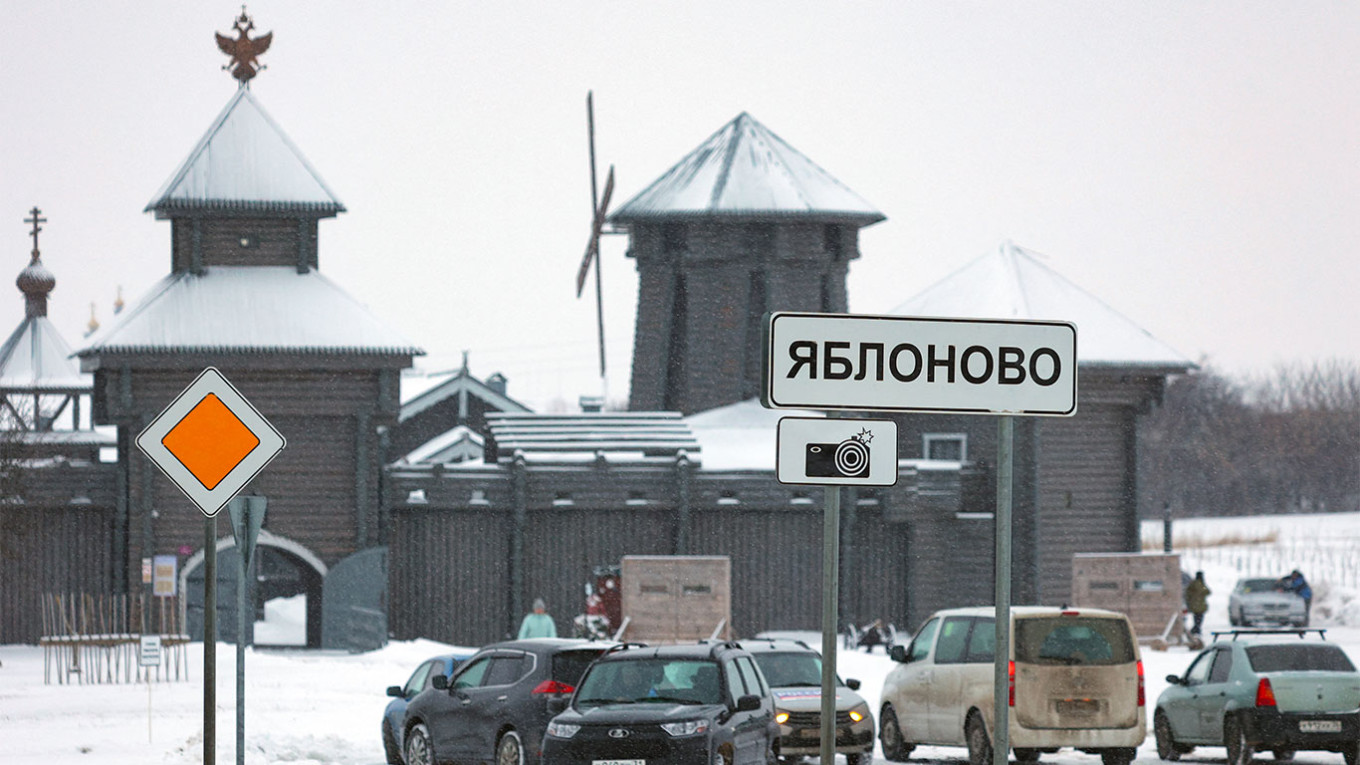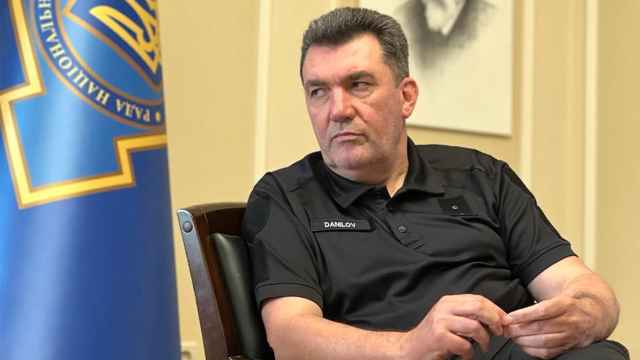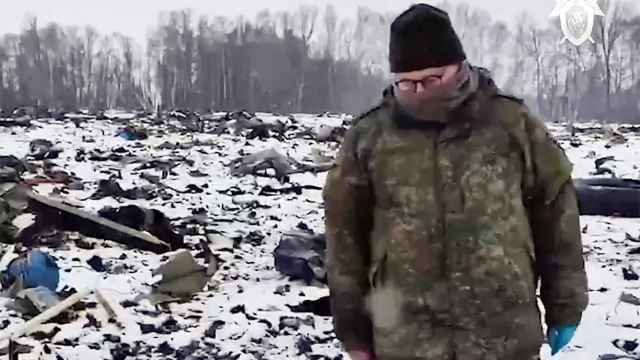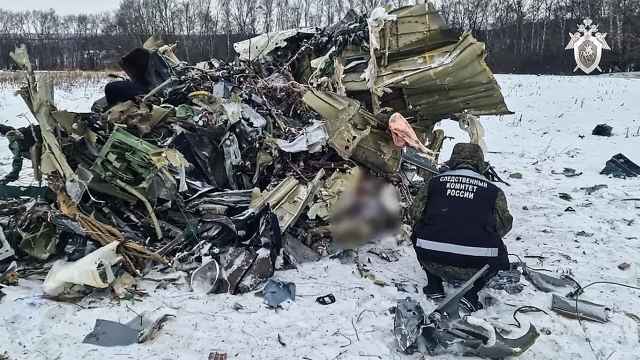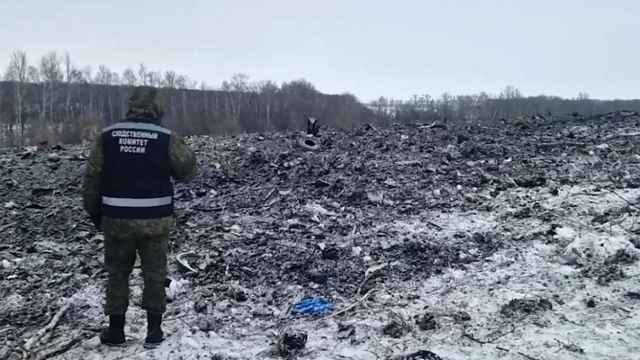A Russian military plane that crashed near the border with Ukraine was supposed to transport senior Russian officials before a last-minute change of plans was made, Ukraine's military intelligence spokesman claimed Thursday.
Russia accuses Ukraine of shooting down one of its Il-76 transport planes over the Belgorod region on Wednesday, killing all 74 people on board, including 65 Ukrainian prisoners of war who were said to be en route to a scheduled exchange.
Kyiv has neither confirmed nor denied its involvement in the air disaster or Moscow's claims about the captured Ukrainian soldiers.
"There were supposed to be several VIPs from [Russia’s] military and political leadership," Ukrainian military intelligence spokesman Andriy Yusov said in an interview with the Ukrainian-language edition of Radio Free Europe/Radio Liberty (RFE/RL).
Yusov claimed Russia’s Federal Security Service (FSB) "ordered them not to board this plane and to use other means of transportation" at the last moment.
Ukraine's intelligence services learned about the alleged switch-up after the Il-76 crash, Yusov said, adding that the FSB barred Russian rescue workers from inspecting the crash site.
He also suggested that Russia may be using Ukrainian prisoners of war as “human shields” while transporting missiles for anti-aircraft systems.
It was not immediately possible to verify Yusov’s claims.
Ukraine's intelligence spokesman added that videos from the Il-76 crash site showed no signs of human remains and claimed only five bodies were taken to a Belgorod morgue on Thursday.
“This figure corresponds to the number of crew members,” Yusov said.
Ukrainian President Volodymyr Zelensky said Wednesday that Russia was "playing with the lives of Ukrainian prisoners" and called for an international investigation into the downing of the plane.
The Kremlin on Thursday called the incident a "monstrous act."
A Message from The Moscow Times:
Dear readers,
We are facing unprecedented challenges. Russia's Prosecutor General's Office has designated The Moscow Times as an "undesirable" organization, criminalizing our work and putting our staff at risk of prosecution. This follows our earlier unjust labeling as a "foreign agent."
These actions are direct attempts to silence independent journalism in Russia. The authorities claim our work "discredits the decisions of the Russian leadership." We see things differently: we strive to provide accurate, unbiased reporting on Russia.
We, the journalists of The Moscow Times, refuse to be silenced. But to continue our work, we need your help.
Your support, no matter how small, makes a world of difference. If you can, please support us monthly starting from just $2. It's quick to set up, and every contribution makes a significant impact.
By supporting The Moscow Times, you're defending open, independent journalism in the face of repression. Thank you for standing with us.
Remind me later.


